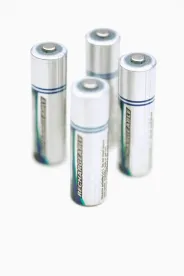On April 18, 2023, the Washington state legislature passed SB 5144: Providing for responsible environmental management of batteries (the Bill). It is now on the Governor’s desk for signature. The Bill creates an extended producer responsibility (EPR) scheme for producers of covered batteries and is another recent example of a state law establishing a broad EPR program to cover all battery chemistries, including lithium-ion batteries.
Key Takeaways
-
Producers of covered batteries and products containing covered batteries must participate in a state approved battery stewardship plan.
-
Beginning July 1, 2027, retailers will only be permitted to sell covered batteries or covered battery containing products if the producer is on a state-approved list, which verifies that the producer participates in a Battery Stewardship organization.
-
Beginning in 2028, large format batteries, covered batteries, or battery-containing products must be marked to identify the producer.
-
Notably, beginning in 2030, the battery must also be labeled to identify the battery chemistry and indicate that the battery should not be disposed of as household waste. This is labeling requirement differs from California, which requires manufacturers to include the chemistry of the batteries in an annual report to the regulator.
-
Washington Department of Ecology (Ecology) must submit a report on preliminary policy recommendations to the Legislature concerning the collection and management of electric vehicle batteries by November 30, 2023, with final recommendations due April 30, 2024.
Covered Products
The Bill’s findings state that the best practice is for battery stewardship programs to collect “all battery types and chemistries” because of how challenging it can be for customers to differentiate between different battery types and the emerging importance of larger batteries used in new markets, such as electric vehicles and solar arrays. The Bill then broadly covers a wide array of batteries, including rechargeable and non-rechargeable batteries of a certain size and watt-hours. Battery or battery-containing product producers should evaluate whether this Bill now covers their products.
Although not included in the battery EPR scheme yet, larger format batteries (greater than 25 pounds) will be subject to labeling/marking requirements beginning in 2028. This Bill also paves the way for additional assessment of the end-of-life management of non-covered batteries, such as large format batteries, lead acid batteries greater than 11 pounds, batteries in medical devices, and batteries not easily removed by the customer. Ecology must conclude its assessment by July 1, 2027.
Producer Requirements
The Bill provides detailed criteria for determining whether an entity is a “producer” of a battery or battery-containing product, which could include manufacturers or brand owners. To sell these products in Washington, producers of covered batteries or battery-containing products must participate in an approved battery stewardship plan by joining and funding a battery stewardship organization. A producer may elect to implement their own battery stewardship plan or designate a nonprofit organization to implement the plan on the producer’s behalf. Among other requirements, the plan must describe how its program will provide for the free collection of all covered batteries.
Noncompliance can lead to the imposition of penalties, and the Bill creates a right of action for battery stewardship organizations to bring an action to recover costs from a producer violating the Bill.
Retailer Requirements
The Bill tiers the dates of the retailer requirements – with a prohibition on the sale of certain portable batteries by July 1, 2027, and a ban on the sale of covered battery and battery-containing products by July 1, 2029 – unless the producer can certify that it participates in a battery stewardship organization. Even though much of the Bill’s requirements fall on producers, retailers of such products could still be subject to monetary penalties if they violate the requirements regarding sale or distribution of covered products from a non-certified producer.








 />i
/>i

